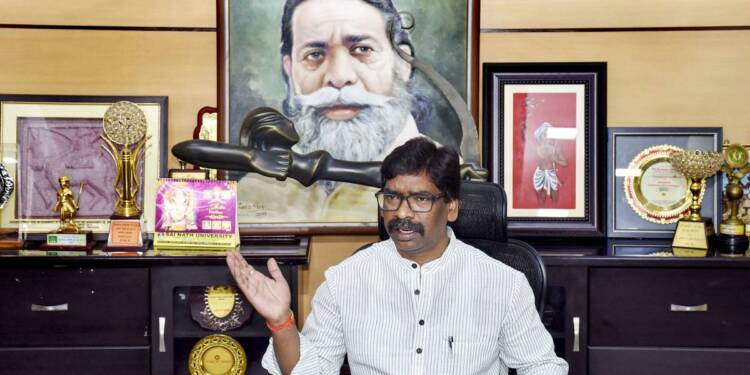A few years ago when the Telangana government brought the 75 per cent quota in private jobs for local residents bill, TFIpost opined that this would start a vicious cycle and the states across the country would fall for this bad idea in order to appease constituents. And, now the same is happening. It has been less than a week that Haryana brought the reservation to locals bill and the Jharkhand government has already followed the suit.
The Hemant Soren government is set to bring a bill that will reserve 75 per cent of the jobs in the private sector with salaries up to 30,000 rupees for locals, reported The Indian Express. “The CM will announce the new policy in the next week of the Assembly session, probably on March 17. A few modalities are yet to be decided; they will be announced in the Assembly,” as per the report.
A state like Jharkhand where a large number of people work outside the state for earnings is also bringing the bill to stop the mobilisation of labour across the country. The economy of Jharkhand relies on the industries run by the people outside the state and remittances from the other industrialised states where the people of Jharkhand work to earn living.
States like Jharkhand, Bihar, Odisha, Uttar Pradesh are labour surplus and are dependent on remittances. Imagine if Gujarat and Maharashtra reserve the jobs for locals and stop people from labour surplus states from working in their factories, what will be the reaction of these governments.
Such policies of reservation will compel entrepreneurs and industries to look for employees within the state and it places an extra burden on the companies to become inward-looking. It must be borne in mind that in today’s era, industries cannot survive with unskilled or manual labour. This, by extension, means that the industries might not be able to practically access the vast demographic dividend of India consisting of technically skilled and qualified individuals, which would in turn directly affect the level of industrial growth and investments.
A pertinent question that arises here is whether all the states which are considering enacting legislation can boast off premier institutions producing highly skilled and qualified individuals matching industrial standards? States like Jharkhand have very few institutions that produce highly competitive human resources which can be deployed in cutting-edge industries.

Moreover, this pattern could end up unleashing a new era of quota politics in terms of reservation of private jobs for locals. The fact remains that even if a quota is actually needed in the case of some of the states, the temptation of political leaders to replicate such quotas in their states in a politically charged atmosphere can never be ruled out. Especially, when polls are around the corner, an inefficient incumbent government might resort to such a tactic of doling out such quotas. All this will end up putting unnecessary restrictions on the industry leaders limiting the talent pool they can choose from.

























If every state follow this rule then what will happen to India as a whole